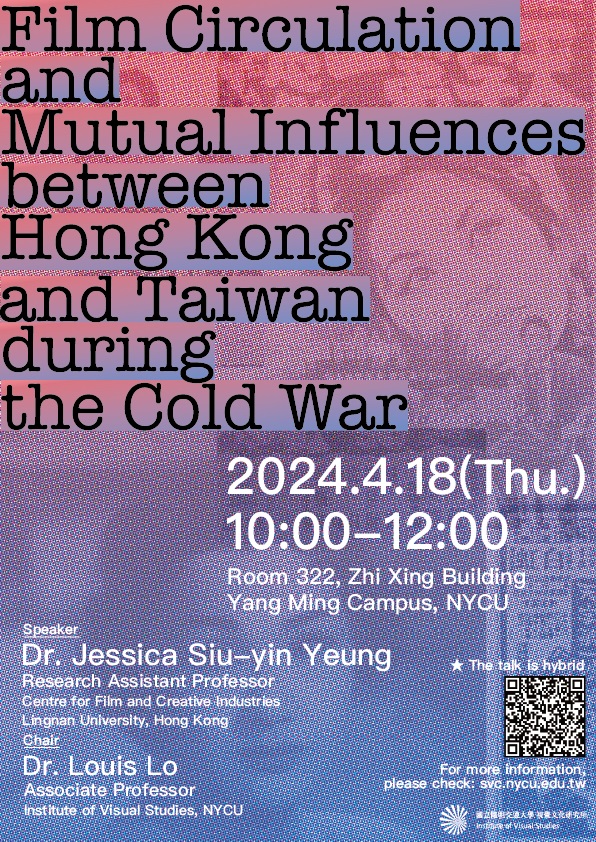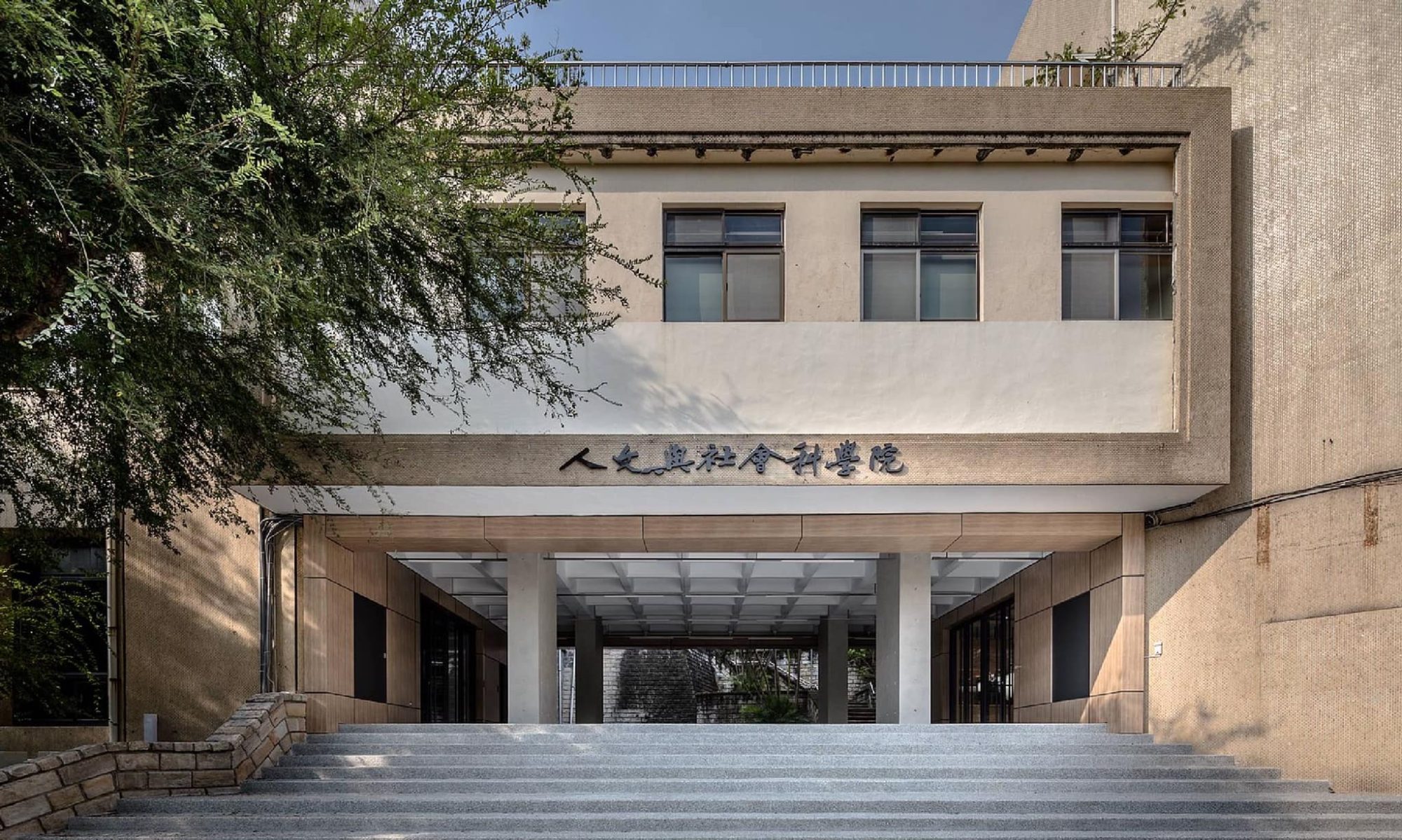
Speaker: Jessica Siu-yin Yeung
Research Assistant Professor at the Centre for Film and Creative Industries of Lingnan University
Chair: Louis Lo
Assistant Professor Institute of Visual Studies, NYCU
Time & Place: April 18th, 2024 (Fri) 10:00-12:00,
ZhiXing Building Room 322, Yang Ming campus in Taipei City, National Yang Ming Chiao Tung University
Online: https://meet.google.com/keb-dovb-cbw
Abstract
Film Circulation and Mutual Influences
between Hong Kong and Taiwan during the Cold War
From a Hong Kong and comparative perspective, Yeung argues that we should consider the structural similarities between the shared production conditions of taiyupian and Cantonese films, and adopt a broader view on the film circulation from wartime Shanghai, to post-war Hong Kong and Taiwan, in Mandarin, Cantonese and Taiyu. The porosity of these competitive film industries will be illustrated in this chapter with the particular example of the female spy series that spanned between 1946 to 1966, between Shanghai, Hong Kong and Taiwan. Yeung will show that taiyupian and Cantonese films share the same sources of materials from Chinese culture and the West. Moreover, Taiwan cinema (Taiyu and Mandarin) and Hong Kong cinema (Amoy, Cantonese and Mandarin) also influenced each other mutually. This chapter studies two pairs of taiyupian and Cantonese films, The Best Secret Agent 天字第一號 (1964) and Lady Spy No. 1 女間諜第一號 (1965) and The Tormented Beauty 烽火佳人 (1958) and the third film in The Best Secret Agent series, Golden Pheasant Heart 金雞心 (1965) to shed light on the connections between Taiyu cinema and Hong Kong Cantonese cinema during the Cold War.
Biographic Note
Jessica Siu-yin Yeung is Research Assistant Professor at the Centre for Film and Creative Industries of Lingnan University. Her essays have appeared in Journal of World Literature, a/b: Auto/Biography Studies, Cultural History, Archiv orientální, and various anthologies. Her essays on Hong Kong and Taiwanese spy films are forthcoming in Taiwanese-Language Cinema (Edinburgh), The Cinema of Stephen Chow (Bloomsbury), and ReFocus: The Historical Films of Ernst Lubitsch (Edinburgh) this year. She is working on an article on periodising early Hong Kong cinema, an article on post-2019 Hong Kong cinema, and a book on Taiwanese and Hong Kong queer allegorical films.
